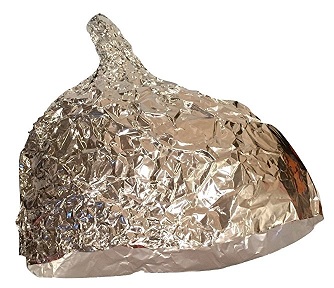I’m just confused as to how anyone has an issue with this:
https://git.kernel.org/pub/scm/linux/kernel/git/torvalds/linux.git/commit/?id=8a104f8b5867c682d994ffa7a74093c54469c11f
It’s literally just the same as “be excellent to each other” explained in more verbosity using different verbiage.
For example, If I just glue them together like this:
Code of Conflict
-----------------
The Linux kernel development effort is a very personal process compared
to "traditional" ways of developing software. Your code and ideas
behind it will be carefully reviewed, often resulting in critique and
criticism. The review will almost always require improvements to the
code before it can be included in the kernel. Know that this happens
because everyone involved wants to see the best possible solution for
the overall success of Linux. This development process has been proven
to create the most robust operating system kernel ever, and we do not
want to do anything to cause the quality of submission and eventual
result to ever decrease.
If however, anyone feels personally abused, threatened, or otherwise
uncomfortable due to this process, that is not acceptable. If so,
please contact the Linux Foundation's Technical Advisory Board at
<[email protected]>, or the individual members, and they
will work to resolve the issue to the best of their ability. For more
information on who is on the Technical Advisory Board and what their
role is, please see:
http://www.linuxfoundation.org/projects/linux/tab
As a reviewer of code, please strive to keep things civil and focused on
the technical issues involved. We are all humans, and frustrations can
be high on both sides of the process. Try to keep in mind the immortal
words of Bill and Ted, "Be excellent to each other."
++For further illustration see the below example for what principles and beliefs can be
++seen as in line with being excellent to each other.
Contributor Covenant Code of Conduct
++++++++++++++++++++++++++++++++++++
Our Pledge
==========
In the interest of fostering an open and welcoming environment, we as
contributors and maintainers pledge to making participation in our project and
our community a harassment-free experience for everyone, regardless of age, body
size, disability, ethnicity, sex characteristics, gender identity and
expression, level of experience, education, socio-economic status, nationality,
personal appearance, race, religion, or sexual identity and orientation.
Our Standards
=============
Examples of behavior that contributes to creating a positive environment
include:
* Using welcoming and inclusive language
* Being respectful of differing viewpoints and experiences
* Gracefully accepting constructive criticism
* Focusing on what is best for the community
* Showing empathy towards other community members
Examples of unacceptable behavior by participants include:
* The use of sexualized language or imagery and unwelcome sexual attention or
advances
* Trolling, insulting/derogatory comments, and personal or political attacks
* Public or private harassment
* Publishing others’ private information, such as a physical or electronic
address, without explicit permission
* Other conduct which could reasonably be considered inappropriate in a
professional setting
Our Responsibilities
====================
Maintainers are responsible for clarifying the standards of acceptable behavior
and are expected to take appropriate and fair corrective action in response to
any instances of unacceptable behavior.
Maintainers have the right and responsibility to remove, edit, or reject
comments, commits, code, wiki edits, issues, and other contributions that are
not aligned to this Code of Conduct, or to ban temporarily or permanently any
contributor for other behaviors that they deem inappropriate, threatening,
offensive, or harmful.
Scope
=====
This Code of Conduct applies both within project spaces and in public spaces
when an individual is representing the project or its community. Examples of
representing a project or community include using an official project e-mail
address, posting via an official social media account, or acting as an appointed
representative at an online or offline event. Representation of a project may be
further defined and clarified by project maintainers.
Enforcement
===========
Instances of abusive, harassing, or otherwise unacceptable behavior may be
reported by contacting the Technical Advisory Board (TAB) at
<[email protected]>. All complaints will be reviewed and
investigated and will result in a response that is deemed necessary and
appropriate to the circumstances. The TAB is obligated to maintain
confidentiality with regard to the reporter of an incident. Further details of
specific enforcement policies may be posted separately.
Maintainers who do not follow or enforce the Code of Conduct in good faith may
face temporary or permanent repercussions as determined by other members of the
project’s leadership.
Attribution
===========
This Code of Conduct is adapted from the Contributor Covenant, version 1.4,
available at https://www.contributor-covenant.org/version/1/4/code-of-conduct.html
EDIT: Actually I’d approve of Linux forming it’s own combined intermediate CoC as an amalgamation of those two.
EDIT2: Incase someone hasn’t read the original commit by Linus & Greg KH
The Code of Conflict is not achieving its implicit goal of fostering civility and the spirit of ‘be excellent to each other’. Explicit guidelines have demonstrated success in other projects and other areas of the kernel. Here is a Code of Conduct statement for the wider kernel. It is based on the Contributor Covenant as described at www.contributor-covenant.org From this point forward, we should abide by these rules in order to help make the kernel community a welcoming environment to participate in.
The unmentioned back story on this is that people didn’t implicitly understand the Code of Conflict and where often impossible to deal with.
So the Linux Community had to Spell it out in verbose explicit detail to make it ass & idiot safe.
It’s a case of, “This is why we can’t have nice things”.
TLDR: People that didn’t comply with the Code of Conflict came and ruined it for everyone else




